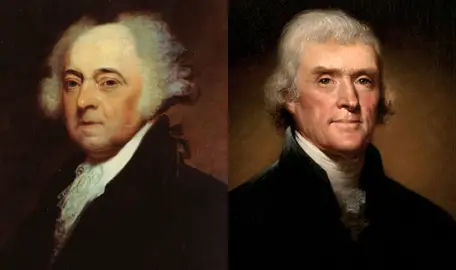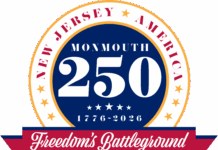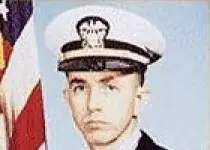While we are celebrating the Fourth of July as the birthday of the United States, it is also a time to reflect on the wisdom, intelligence and thirst for justice and knowledge of Thomas Jefferson, the writer of the Declaration of Independence.
It’s also time to reflect on John Adams, the obstinate, stubborn and determined member of the Second Continental Congress who directed that Jefferson write the Declaration.
Author Joseph Ellis referred to the two men as the Odd Couple of the Revolution.” And so they were.
While they could not have been more different in appearance, style, demeanor, political beliefs and national roots… Jefferson was a Southerner, Adams a New Englander, Adams a Federalist, Jefferson a Republican…they were close friends, then distant enemies, then at the ends of their lives, close friends once again.
The story of both of their deaths on the 50th anniversary of the signing of the Declaration, both thinking of each other or that day in the minutes before their deaths is well known.
But why they fought and disliked each other for years, and how they got to rekindle their friendship is not so well known. It is a lesson for all that even our beloved forefathers lost respect and affection for each other over politics.
Today, we can also learn from these same forefathers it is truly possible to disagree politically, but continue to cherish a friendship and personal happiness.
The friendship that began when the Southern gentleman and the feisty New Englander nine years his senior both served in the Second Continental Congress lasted through those years of forming the nation until Adams was elected the first vice-president, and Jefferson named the first Secretary of State.
Jefferson was a staunch believer in the new states each preserving their own rights, Adams, on the other hand, favored Washington’s idea of a strong central government with each state having very little power to do anything. Jefferson, realizing he could not carry out his duties under a President who rejected states rights, resigned as Secretary of State And so the feud between two friends began…over politics.
It got worse when Adams was elected President and Jefferson vice-president, at a time the two offices were not determined by a single vote.
Adams had won by a slim margin, so they could not have been happy years as two strong intelligent and passionate men each sought his own political belief to be correct.
It got worse in 1800 when Adams ran for his second term, and Jefferson won. The New Englander was so incensed and crushed by his loss, he and Abigail scooted out of Washington before Jefferson’s inauguration.
And so the friendship that had worked together to form a nation fell apart because of political differences.
For the next dozen years or so, the antipathy continued; Adams even writing letters gossiping about Jefferson, complaining about how he was running the country, making some pretty illicit remarks about Mr. Jefferson’s personal life.
Another old friend, Benjamin Rush, who was also one of the original signers of the Declaration we are celebrating Monday, lamented over the friendship that had been lost between his two friends. So he wrote both of them letters, telling each that the other wanted to renew the friendship. And he kept it up in subsequent letters.
It was Adams who conceded first and wrote a brief note to Jefferson at Monticello. Jefferson answered. Adams wrote again. Jefferson answered again. Over the next 12 years, the two shared 158 letters, most of which are preserved today. In one letter, Adams told his old friend “you and I ought not die before we explain ourselves to each other.”
And that is why, while Jefferson was dying the eve of July 4, his last words were, “Is it the Fourth?” When told no, he lived for several more hours, dying just before the sun rose on the Fourth of July, 50 years after the famed document was signed.
Hours later, at his home in Massachusetts John Adams’ last thoughts were both of the Declaration and his old friend as he said, ”Thomas Jefferson still survives.” He was wrong, but how could he know that Jefferson had died just hours before at his home in Virginia.
Two lives… Two enemies… One Nation… One Friendship.
The founding fathers can teach us so much.



